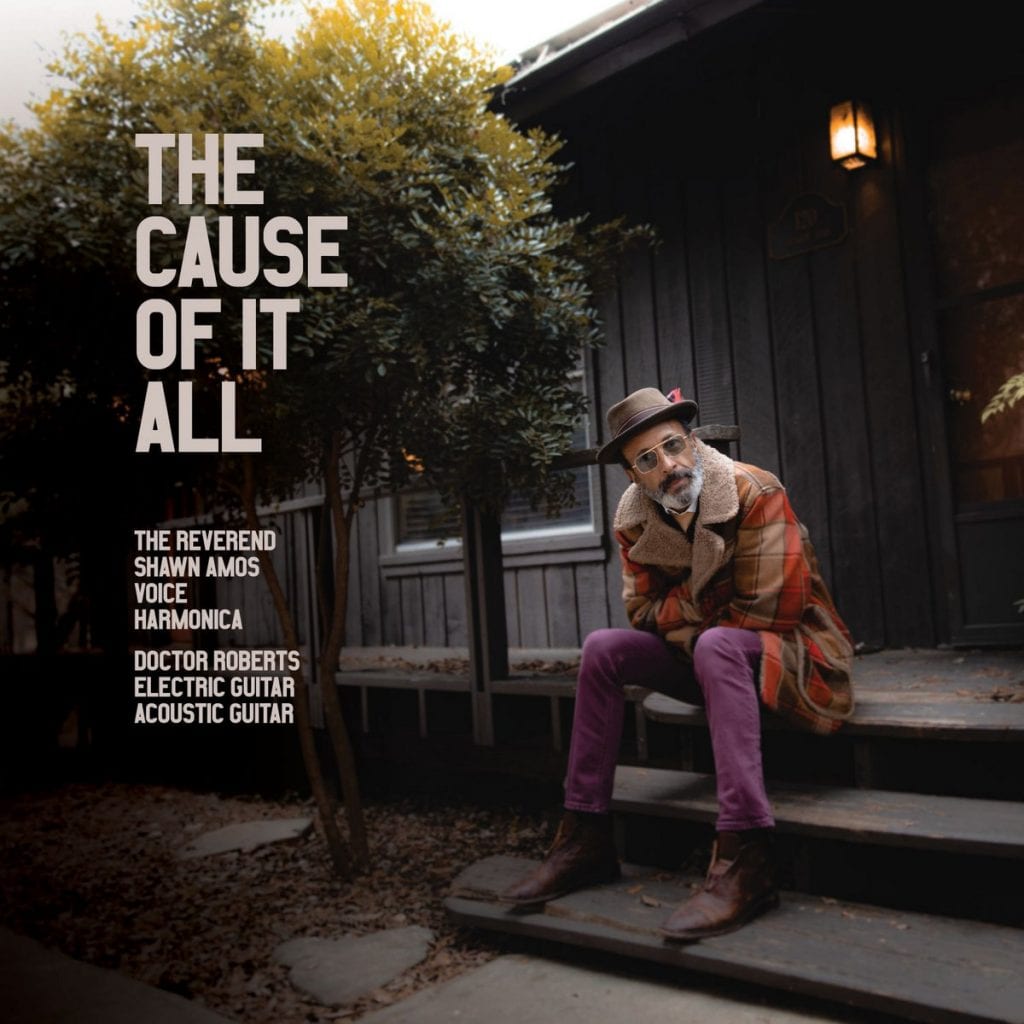The Reverend Shawn Amos Reaches Back to Blues Masters and Finds ‘The Cause of It All’

Blues isn’t supposed to be mannered and reverent. It’s meant to be delivered from the soul, the bones, the dirt, the hands, the heart. It’s at its best when it’s dirty, raw, lowdown, at least just a little manic, unhinged. If you’re not lucky enough to catch it live in a roadside juke joint (which is less and less likely these days), it sounds best when it’s coming from another room on an old transistor radio barely tuned into the station, where the static is just as present as the music. Or creeping through the trees from an unknown direction on a moonlit night down a dark, lonely dirt road. Or maybe in a smoke-filled pool hall (very unlikely these days) where the longing, distorted vocal, harp, and guitar are barely audible over the breaking of the balls and the clinking of the bottles.
These images are all conjured while listening to The Cause of It All, the new album from the Reverend Shawn Amos. Working as a duo with longtime guitarist Chris “Doctor” Roberts, Amos stomps, hollers, and holds notes on his harp beyond the sensical or what’s appropriate, but that’s the beauty of this mess. Roberts’ guitar plays off the obvious love Amos has for this material, digging in, crunching chords, squeezing notes through fat, dirty distortion that takes the blues back to its primal, sensual foundation.
All the usual spirits are summoned: Willie Dixon, John Lee Hooker, Howlin’ Wolf, Big Joe Williams, Muddy Waters, Little Walter, and a singular nod to the more recent work of the late Lester Butler, who fronted LA rockers The Red Devils on the swinging “Goin’ to the Church.”
While the acoustic second half of the album naturally and dutifully recalls the classic sides of the duos Sonny Terry and Brownie McGhee as well as Buddy Guy and Junior Wells, it’s the electric half that really stomps and howls. From the devilish eroticism of well-worn opener “Spoonful” to a downright hypnotic fit of paranoia on John Lee Hooker’s “Serves Me Right to Suffer,” Roberts’ sinister distortion drives Amos’ vocals and harmonica into the type of reckless territory the masters would admire.
The Cause of It All was recorded during quarantine, a good a reason as any to sing the blues. Yet the result reminds us why the blues began; not to wallow in one’s self-pity, but to find power through its performance that somehow brings hope for a better day and time. That hope and joy is ever-present here and is indeed the cause of it all.



